- Home
- Heather Graham
The Final Deception Page 4
The Final Deception Read online
Page 4
She sighed. “They’re still arguing over the charges Raoul Nicholson is going to face. Dr. Fuller has interviewed him, and Dr. Miro has interviewed him. Probably a few police psychiatrists, too. They asked me to speak with him today.”
“So, that’s why you’re here, hmm?” he asked quietly.
“Hey, I’m here all the time!” Kieran protested.
Declan nodded, studying her. “Yeah, but...you could have had a nice, relaxing night alone in your great new apartment. That creep got under your skin. There’s something about the way he doesn’t look crazy that is even more disturbing, like his evil is hidden, devious...anyway...”
“Yeah, you feel like you need a shower.”
“I would think just walking into the facility at Rikers would make you feel like you need a shower.”
“Hey, eighty-five percent of the people there are awaiting arraignment or trial—they’ve yet to be proven guilty. For that matter, Nicholson is still waiting for his trial date.”
“So much for speedy justice.”
“His is an unusual case. He’s confessed to the murders, but his mental state and his ability to aid in his own trial are under question. And we try, but statistically, about one hundred thousand people enter Rikers on a yearly basis—that’s a lot of people.”
“Well, we are on an island of millions,” Declan said. “Let’s get off the criminals. So what does Craig say?”
“About what?” Kieran asked with a frown.
“The wedding!”
“Oh, he says we should do whatever I want—except, he knows the reception has to be here.”
“Of course,” Declan said.
“Declan!” a customer called, and Declan excused himself.
Kieran hadn’t heard from Craig recently and was about to call him when she felt someone coming close behind her; instinctively, she whirled around on her stool.
“Woah!”
It was Kevin, her twin brother. He was tall like Declan, with slightly lighter hair. She looked up into eyes a blue-green shade like her own.
“Your show over?” she asked, trying to offer him a big smile. He was currently in a new musical that had been running about a month called A Bite of the Apple, a play on the history of New York City.
He glanced at his watch. “Yeah, it’s late!”
“How was the night?”
“Sold out—a Friday night in New York. And a great audience. You know, I wouldn’t be against a role in a big-time drama or sitcom that paid megabills for years and years, but I do love live audiences. So, how was your day?” he asked, sliding around her to lean against the bar.
“Uh...well...”
“She interviewed Raoul Nicholson today,” she heard Declan say. He’d delivered an ale to a man just around the corner from them and returned to eye them both.
“Wow. How’d that go—first time you’ve met him, right?”
“Yes, it was the first time I saw him. Miro and Fuller wanted me to talk to him. They didn’t tell me anything about their reports. They wanted my unbiased take on him.”
“And your take was...?” Kevin asked.
She looked at Declan and shrugged. “Disturbed—in a very different way. He doesn’t appear to have any other signs of mental illness, but he believes the people he killed were witches. He feels they would have done some terrible evil to others—if he hadn’t stopped them. He understands the laws of the state, and that in the eyes of the state, he’s guilty. And he isn’t remorseful. He did what he had to do as long as he could do it. Or not.”
“Or not?” Kevin asked.
She shrugged. “I’m not even sure if he was making it all up—except he hasn’t asked for an insanity plea. His attorney wants to go for it.”
“And the prosecution?”
“Is still playing around with the exact charges they’ll bring into court. He has been charged with murder—but how they’ll amend the charges before trial depends on what the prosecution believes they’ll be able to prove.”
“There’s irrefutable evidence against him, and he confessed,” Declan said.
“Yes, but his sentencing and the trial will hinge on whether he is or isn’t sane. They’d have him executed, I believe, if they could. He has said outright that he would kill again. The thing is, they don’t want him getting out, and if a slew of medical experts declare him unfit to stand trial...”
“And that hinges on whether he’s telling the truth?” Kevin asked.
“Hey, Declan!” someone called. “Turn up the television. I don’t believe this! He’s out—that bastard Fireman guy. He’s out!”
CHAPTER THREE
CRAIG STARED AT MIKE, incredulous. Then he pulled his phone from his pocket. There wasn’t a valid reason he should be worried about Kieran—except she had interviewed a killer that afternoon, just before he had somehow escaped. But Nicholson killed those he thought to be witches, and it was doubtful he could think of Kieran as a witch.
Then again, what criteria had the man used to determine who was or wasn’t a witch?
Only the voice in his head.
How the hell had the man gotten out? Craig needed to know; they needed to be back on the hunt.
But not until he had spoken with Kieran.
She answered his call on the first ring.
“Where are you?” he asked her.
“The pub—I came right back in after you left, and I’m fine,” she told him.
“You know he’s out.”
“It’s all over the news. But keep at whatever you’re doing. I’m the last person you need to worry about—Nicholson does not think I’m a witch.”
“Yes, but he knows you.”
“Craig, he knows hundreds of people, I’m sure. Trust me—he doesn’t believe I’m a witch. He told me as much. Craig,” she added softly, “we can’t do this all the time.”
“We don’t do it all the time,” he said defensively. “Just when there’s a credible threat to your safety. You’re forgetting other cases.”
“Craig, I’m good. And I’m at the pub and—”
He heard her protest as her phone was taken from her.
“She’s not leaving here alone,” Kevin interrupted. “And it’s not just her. You should listen to the people in here. The media got wind of it quickly, and no one is going home alone. There’s a group from Wall Street that meets here all the time, and they’re divvying up who is going with who to make sure everyone gets home okay. I’ll go with Kieran, and I’ll stay at your place until you get back.”
Craig heard Kieran chastise her brother. “You have a matinee tomorrow!”
“Right, well—”
“We have the guest room all set up,” Craig reminded him.
“So I’ll sleep at your place,” Kevin continued.
Mike was watching Craig. He slowly lifted an eyebrow.
“Thanks, Kevin,” Craig said, and hung up.
“So, seems the media has wind of what we didn’t know,” he said to Mike.
His partner nodded grimly. “I don’t know how word got out so fast,” he said. “But here’s the story—Nicholson is out. He didn’t kill anyone during his escape. Apparently he had an interview this afternoon and then complained of violent pain in his stomach. He got himself to the infirmary and drugged a pack of people. But how he got out from there, no one knows. Dressed up as a guard—that’s what they’re suspecting at the moment. But...yeah, he’s gone. He’s out.”
“When did all this happen?” Craig demanded.
“Approximately four hours ago.”
“Barely enough time to get from Rikers Island to here, find a way up and kill and set a fire to the body and then somehow escape.”
“Barely enough...but possible?”
“Possible, but...just barely.”
“You think someone is setting up a killer—as
a killer?”
“If you wanted to kill someone and get away with it, what better way than to set it up on a confessed murderer?” Craig asked.
“But the timing...” Mike said, shaking his head.
“Yeah, tough to think that timing works,” Craig agreed. “And then again, strangling, the same, tongue cut out, the same, eyes gouged, the same, set afire with gasoline...the same. And a man who could make his way out of Rikers...well, it’s not that far-fetched to think he might have made his way up here.” He shrugged. “I want to speak with the doorman.”
“We might want to start in the morning,” Mike said. “Craig, it’s nearly midnight.”
“And no better time to strike, right? Midnight. The ‘witching’ hour,” Craig said dryly.
“Okay then,” Mike said wearily. “Let’s interview the security guard. Officers have been pounding on doors and waking the neighbors...and the news is out that Raoul Nicholson has escaped. By morning, the world is going to know about another murder.”
“And then we have to go out to Rikers,” Craig said.
“Sure, yeah, we’ll sleep when we’re dead. And partnering with you, my friend, I always figure that might come sooner rather than later.”
* * *
Kieran and Kevin sat in the apartment on Reed Street. She had wanted to walk—it was an easy enough distance to cover on foot. But she had been overruled; no easy strolls that night. Taking the path of least resistance, Kieran had allowed one of the regulars, Mitch Beattie—who had moved to Brooklyn, but still chose to come to Finnegan’s on Friday nights, switching his drink from Guinness to the Guinness nonalcoholic beer, Kaliber—to drive them to the apartment complex. Once there, Kieran had put water on to boil for a pot of tea, and hoped Craig would walk in any minute.
She’d known Kevin was working on writing his own play, and so she tried to draw him out on it. Her questions seemed to be working. Kevin was a fine actor, she thought, and the perfect leading-man type. But he really loved the theater, and would often take a project when he thought the writing was excellent—even if he didn’t think it would prove to be a blockbuster.
“It’s historical, and I’m going from the beginning of New York—Dutch settlement, all that.” He grimaced. “‘No Irish Need Apply,’” he said, quoting signs that had been displayed in the mid-1800s throughout the city. “It’s about the country really, and the incredible melting pot that is New York, and how different ethnic groups found their place. By the way, there was no killing of witches here. Salem—as we know—wasn’t the first or only place in the colonies women were persecuted, but seriously, most cases were in the Massachusetts Bay Colony—Connecticut and Massachusetts. Makes you wonder how Raoul Nicholson got started on his killing spree. I know he’s a fundamentalist, but I do have friends who are fundamentalists, and they’re horrified by what happened. It doesn’t seem to have anything to do with any recognized religion. He’s on his own private mission.”
“I think we should talk about the theater,” Kieran said.
“I think we should talk about Raoul Nicholson. He’s on the streets again.”
“Maybe far from New York.”
“Madman or liar?” he asked her.
“Either way, your concern for me is just about as crazy—not that I don’t love you for it. The man doesn’t think I’m a witch. Honest. And you need a key and a code to get into this building. And our windows and our one and only door are connected to a state-of-the-art security system. I’m safe,” she added softly. “So, New York City history—from the Dutch settlement to today. That’s a lot to handle!”
She realized he wasn’t really listening. He was looking past her to the television; she left him watching the news while she brewed the tea.
The sound was low; Kevin found the remote control and raised the volume.
“We know Nicholson is out,” Kieran protested, thinking that watching the same news over and over again wasn’t going to get them anywhere. “Kevin—”
“I know where Craig is,” he said. “He did it already—Nicholson has killed again!” Kevin said.
Kieran spun around to see the wide-screen TV.
A reporter was standing alongside Central Park on the Upper East Side. She was grave as she spoke. The street was filled with vehicles, cop cars, dark sedans, FBI standard issue, she thought, and vehicles that were labeled as belonging to crime scene forensics units.
There was also an ambulance.
“The police have informed us that multimillionaire Charles Mayhew was murdered tonight in his guarded apartment here on the Upper East Side. Mr. Mayhew is well-known to New Yorkers for his many philanthropic works. The police are giving us all ‘no comment’ remarks when we question them regarding the situation. The media, however, was alerted by an anonymous source—someone, we believe, within the building. We know the police can’t give out much information on an ongoing investigation, but we can’t help but speculate on this murder on the very eve the heinous ‘Fireman’ has escaped his prison on Rikers Island.”
“Lord!” Kevin breathed. “He is out there...out here. He’s killed again. Already. He escaped what, four hours ago, something like that?”
“Kevin, it would be nice to think Nicholson is the only man in New York who proved to be a killer. Nice, but that’s hardly true. Anything could have happened. Mayhew was richer than Croesus. He might have made all kinds of enemies to get that way,” Kieran said. “We don’t know what—”
“Craig knows,” Kevin interrupted. “Call him.”
“I’m not calling him—he’s working. And,” she told him, “you’re going to go to sleep, and so am I. You have a matinee, and you’re going to be brilliant and shine.”
“Kieran...”
“And you’re welcome for the tea—the least I can do, with you insisting on staying with me,” she said.
“I didn’t—”
“Good night, Kevin. I love you. Guest room is all set up.”
She walked to him, gave him a kiss on the cheek, and turned to head up the stairs to the loft.
She didn’t know if he went into the guest room or not. She really hoped he did. The weekends were hard work; his show offered matinees on both Saturday and Sunday, and then again on Wednesdays, as well.
She loved her twin very much. But she didn’t want him harping on about the case. She knew she wouldn’t be able to sleep; she hoped Kevin could.
Though she wouldn’t admit it, she was as suspicious as he was that Nicholson might be at it again.
But...how? How had he gotten from Rikers Island and up to a posh apartment on the East Side in such a short amount of time?
She pulled out her computer, keying in words, trying to find anything regarding modern-day witchcraft, biblical witchcraft, or anything else that might have started Raoul Nicholson on the belief that people walking the streets of New York might be witches.
She was stunned to read an article reporting human rights agencies within the United Nations were working desperately to counter a rising number of persecutions across the globe in the twenty-first century; as recently as 2013, in Papua New Guinea, a twenty-year-old mother had been burned alive—suspected of sorcery. There were dozens more reports from various African countries, and the researchers believe the modern persecutions reached well into the developed Western world.
She leaned back on her pillow.
Not here, she thought. Not in New York City!
Was Nicholson just one of many?
She began looking back into the history of executions in the United States, the first on record being that of Alse or Alice Young of Windsor, Connecticut. The woman was hanged in May of 1647. In 1648, Mary Johnson confessed to practicing witchcraft—or “familiarity with the devil.” The confession came after a series of beatings, and God alone knew what else. Because Mary was pregnant, she was allowed to live until her child was born. She w
asn’t executed until 1650. In all, between the years 1647 and 1697, records showed that thirty-five people were accused of witchcraft. Eleven were executed.
“Unbelievable,” Kieran muttered to herself, searching for another article. The author of her next reference suggested that harsh New England winters, the fear of attacks from the native population, and the ravages often left by disease had the settlers looking for a scapegoat.
Not to mention that back in Europe, mass executions were occurring.
An estimated forty thousand to sixty thousand people had been executed in Europe between the 1400s and early 1700s.
But that barbaric practice had stopped.
She wanted to keep searching, studying the past to try to determine how a man could believe, in today’s world, strangers were in league with the devil. But her efforts were to no avail.
She fell asleep with the computer still on her lap.
* * *
Joey Catalano seemed to be a decent enough guy. He was about twenty-five, clean-cut, with serious brown eyes, a six-foot frame, and a solid middleweight’s body. He was polite, but he also carried a gun. Licensed, he’d assured Craig and Mike right away—possibly because the police had already asked that question.
They met with him in the guard’s tiny office in the lobby, next to the elevator. He’d brought in his boss, a middle-aged man, thin and austere, with steel-gray eyes and hair and that matched his demeanor. He was introduced as Simon Wrigley.
He was the Wrigley, apparently, of Wrigley Security Systems, the company contracted by the building, and was ready to help with any answers Joey Catalano couldn’t give.
Another man in the security service had been called in to work the door.
Simon Wrigley was probably there, too, because Joey Catalano—despite the fact that he made a great “security” presence with his build and his height—seemed to be unnerved by what had happened. His fingers shook.
Of course, a grisly murder had happened on his watch.
By the fierce way Wrigley looked at him, Joey was probably unnerved by his boss, as well.

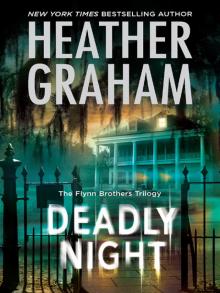 Deadly Night
Deadly Night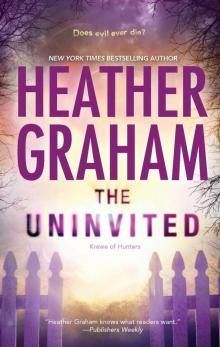 The Uninvited
The Uninvited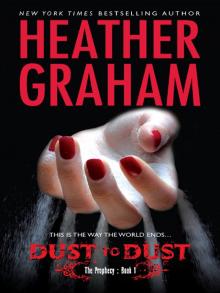 Dust to Dust
Dust to Dust Heart of Evil
Heart of Evil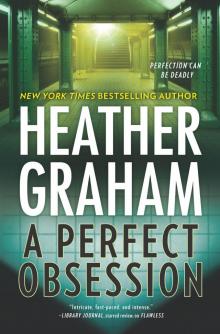 A Perfect Obsession
A Perfect Obsession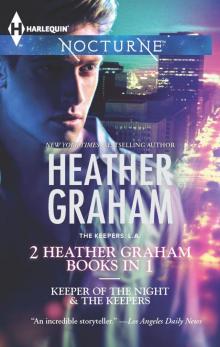 The Keepers
The Keepers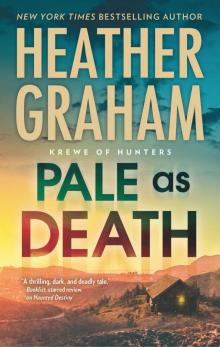 Pale as Death
Pale as Death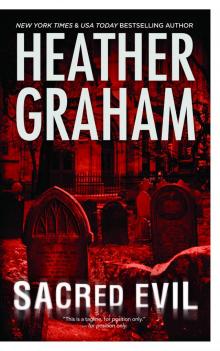 Phantom Evil
Phantom Evil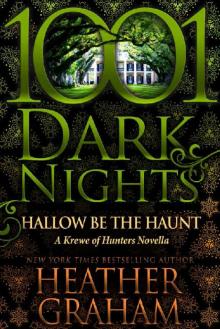 Hallow Be the Haunt
Hallow Be the Haunt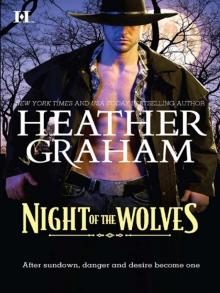 Night of the Wolves
Night of the Wolves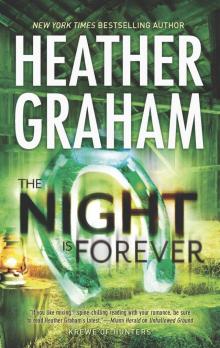 The Night Is Forever
The Night Is Forever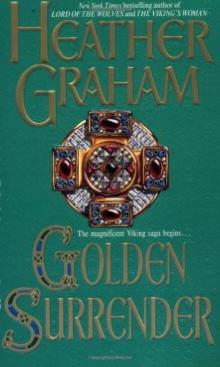 Golden Surrender
Golden Surrender Kiss of Darkness
Kiss of Darkness Beneath a Blood Red Moon
Beneath a Blood Red Moon A Dangerous Game
A Dangerous Game Ghost Shadow
Ghost Shadow Long, Lean, and Lethal
Long, Lean, and Lethal Fade to Black
Fade to Black The Rising
The Rising And One Wore Gray
And One Wore Gray Rebel
Rebel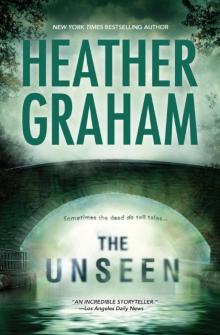 The Unseen
The Unseen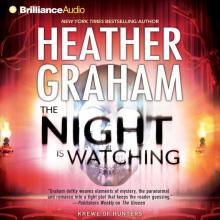 The Night Is Watching
The Night Is Watching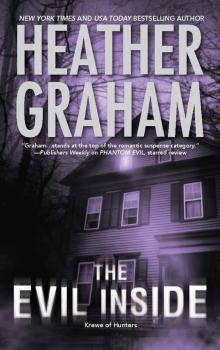 The Evil Inside
The Evil Inside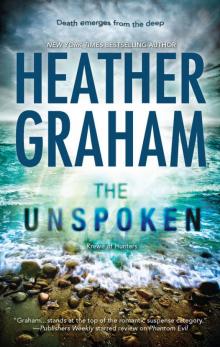 The Unspoken
The Unspoken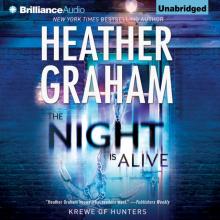 The Night Is Alive
The Night Is Alive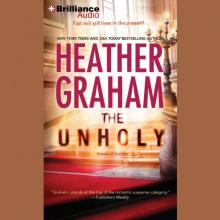 The Unholy
The Unholy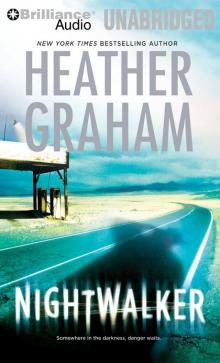 Nightwalker
Nightwalker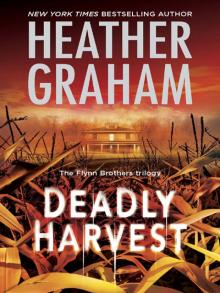 Deadly Harvest
Deadly Harvest An Angel for Christmas
An Angel for Christmas A Pirate's Pleasure
A Pirate's Pleasure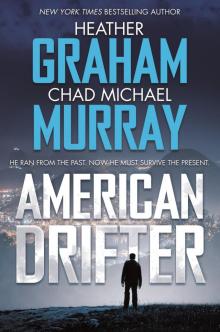 American Drifter
American Drifter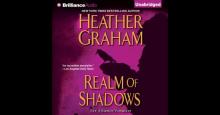 Realm of Shadows
Realm of Shadows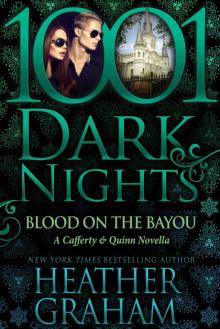 Blood on the Bayou
Blood on the Bayou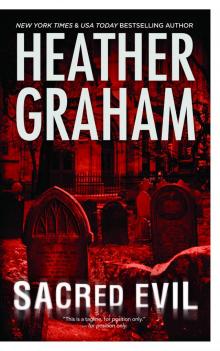 Sacred Evil
Sacred Evil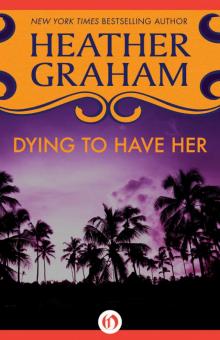 Dying to Have Her
Dying to Have Her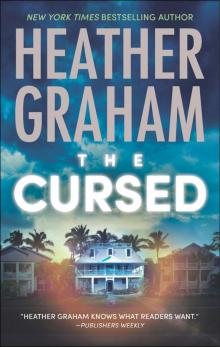 The Cursed
The Cursed Captive
Captive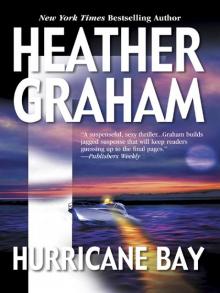 Hurricane Bay
Hurricane Bay Drop Dead Gorgeous
Drop Dead Gorgeous Ghost Memories
Ghost Memories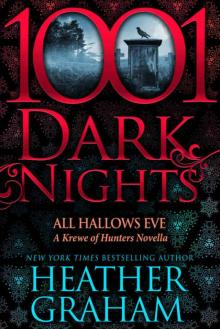 All Hallows Eve
All Hallows Eve Dying Breath
Dying Breath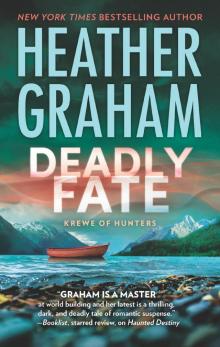 Deadly Fate
Deadly Fate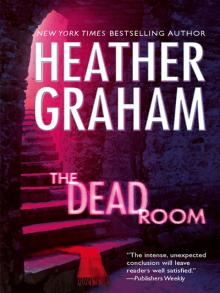 The Dead Room
The Dead Room Lord of the Wolves
Lord of the Wolves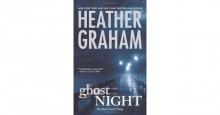 Ghost Night
Ghost Night Ghost Walk
Ghost Walk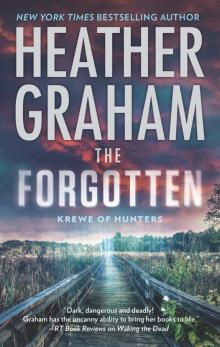 The Forgotten
The Forgotten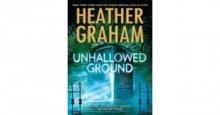 Unhallowed Ground
Unhallowed Ground One Wore Blue
One Wore Blue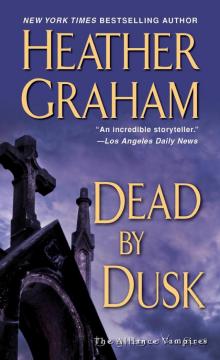 Dead By Dusk
Dead By Dusk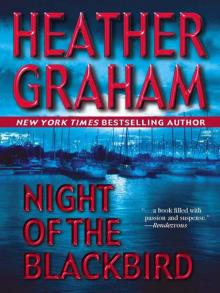 Night of the Blackbird
Night of the Blackbird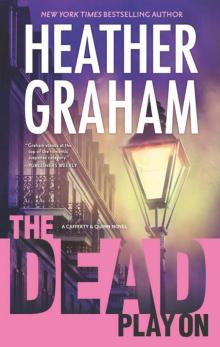 The Dead Play On
The Dead Play On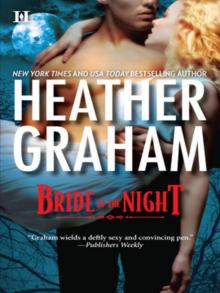 Bride of the Night
Bride of the Night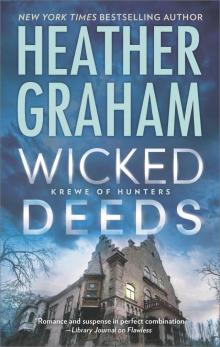 Wicked Deeds
Wicked Deeds The Forbidden
The Forbidden Triumph
Triumph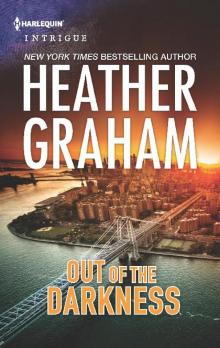 Out of the Darkness
Out of the Darkness Love Not a Rebel
Love Not a Rebel The Last Noel
The Last Noel Tall, Dark, and Deadly
Tall, Dark, and Deadly The Death Dealer
The Death Dealer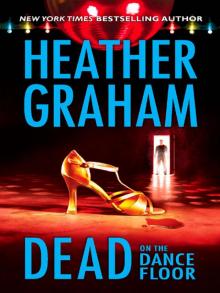 Dead on the Dance Floor
Dead on the Dance Floor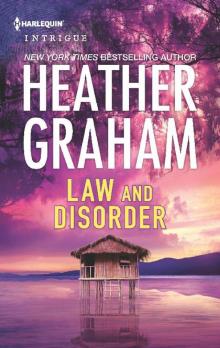 Law and Disorder
Law and Disorder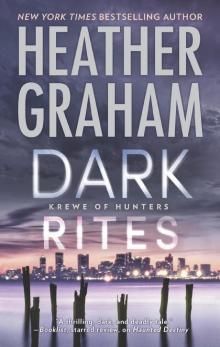 Dark Rites
Dark Rites New Year's Eve
New Year's Eve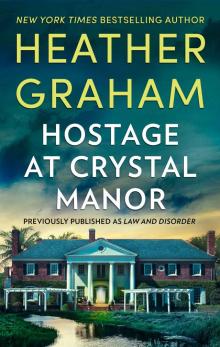 Hostage At Crystal Manor
Hostage At Crystal Manor And One Rode West
And One Rode West Home in Time for Christmas
Home in Time for Christmas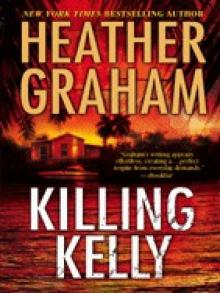 Killing Kelly
Killing Kelly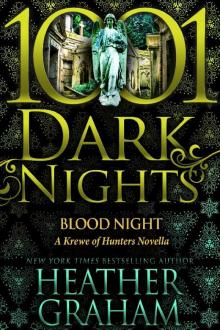 Blood Night
Blood Night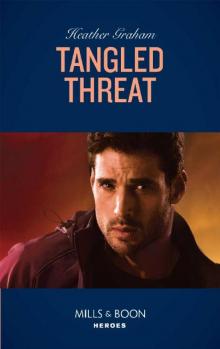 Tangled Threat (Mills & Boon Heroes)
Tangled Threat (Mills & Boon Heroes)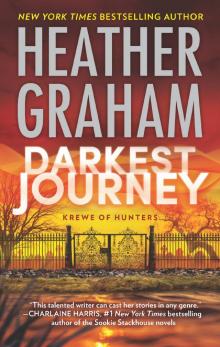 Darkest Journey
Darkest Journey Glory
Glory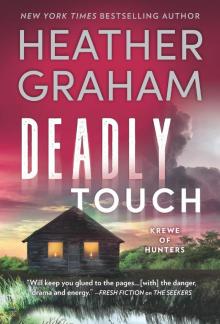 Deadly Touch
Deadly Touch An Unexpected Guest
An Unexpected Guest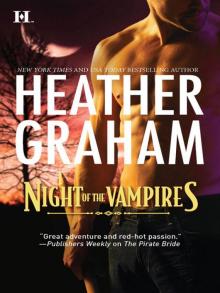 Night of the Vampires
Night of the Vampires Seize the Wind
Seize the Wind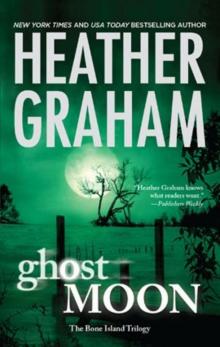 Ghost Moon
Ghost Moon The Vision
The Vision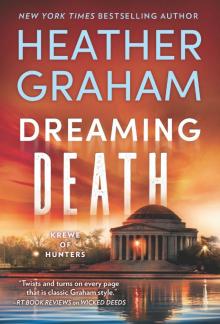 Dreaming Death
Dreaming Death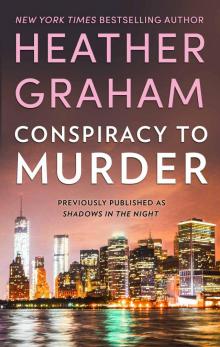 Conspiracy to Murder
Conspiracy to Murder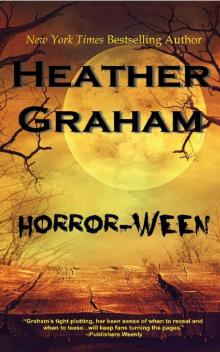 Horror-Ween (Krewe of Hunters)
Horror-Ween (Krewe of Hunters)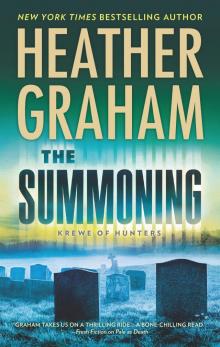 The Summoning
The Summoning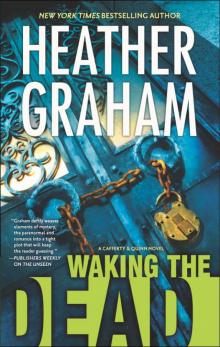 Waking the Dead
Waking the Dead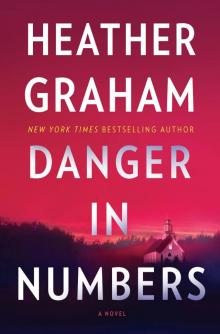 Danger in Numbers
Danger in Numbers The Hidden
The Hidden Sweet Savage Eden
Sweet Savage Eden Tangled Threat ; Suspicious
Tangled Threat ; Suspicious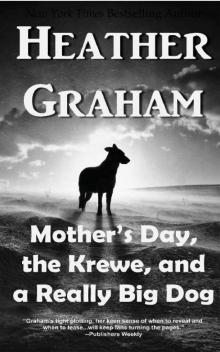 Mother's Day, the Krewe, and a Really Big Dog
Mother's Day, the Krewe, and a Really Big Dog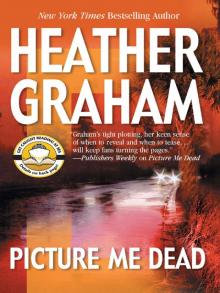 Picture Me Dead
Picture Me Dead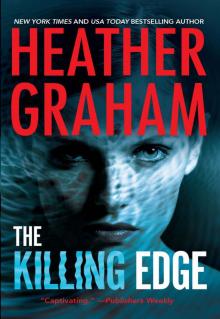 The Killing Edge
The Killing Edge St. Patrick's Day
St. Patrick's Day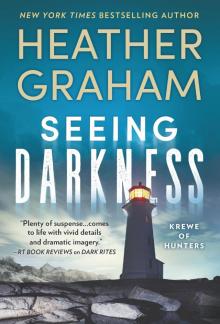 Seeing Darkness
Seeing Darkness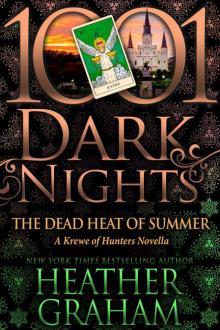 The Dead Heat of Summer: A Krewe of Hunters Novella
The Dead Heat of Summer: A Krewe of Hunters Novella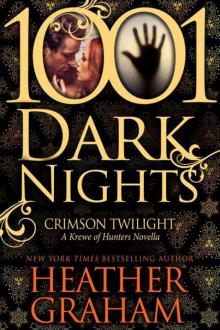 Crimson Twilight
Crimson Twilight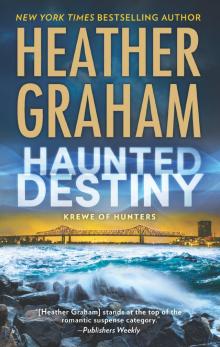 Haunted Destiny
Haunted Destiny Devil's Mistress
Devil's Mistress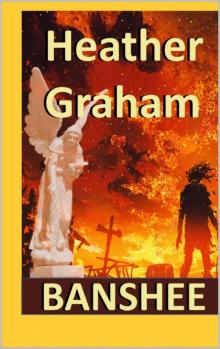 Banshee
Banshee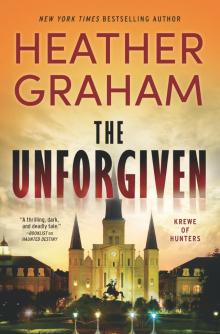 The Unforgiven
The Unforgiven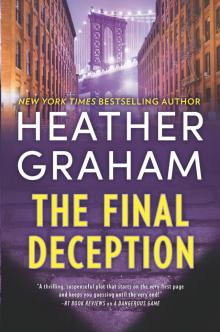 The Final Deception
The Final Deception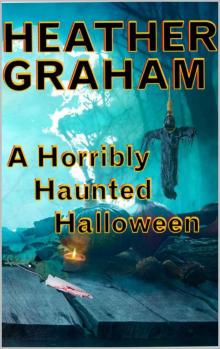 A Horribly Haunted Halloween
A Horribly Haunted Halloween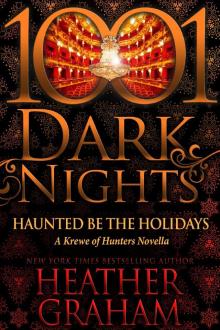 Haunted Be the Holidays
Haunted Be the Holidays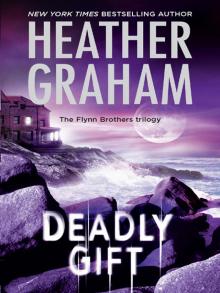 Deadly Gift
Deadly Gift Easter, the Krewe and Another Large White Rabbit
Easter, the Krewe and Another Large White Rabbit Haunted
Haunted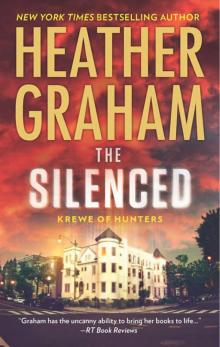 The Silenced
The Silenced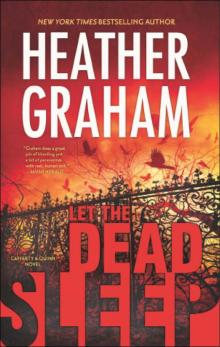 Let the Dead Sleep
Let the Dead Sleep Christmas, the Krewe, and Kenneth
Christmas, the Krewe, and Kenneth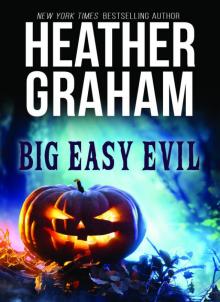 Big Easy Evil
Big Easy Evil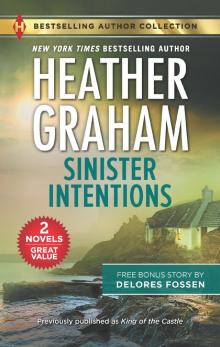 Sinister Intentions & Confiscated Conception
Sinister Intentions & Confiscated Conception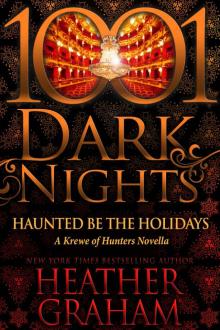 Haunted Be the Holidays: A Krewe of Hunters Novella
Haunted Be the Holidays: A Krewe of Hunters Novella Blood Red
Blood Red A Perilous Eden
A Perilous Eden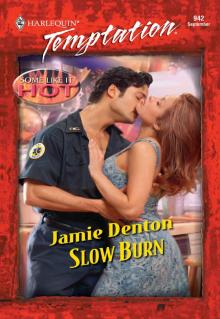 Slow Burn
Slow Burn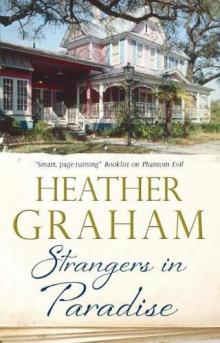 Strangers In Paradise
Strangers In Paradise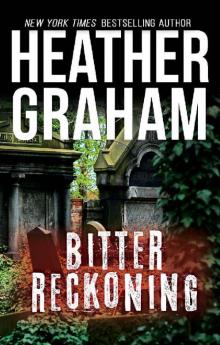 Bitter Reckoning
Bitter Reckoning Krewe of Hunters, Volume 1: Phantom Evil ; Heart of Evil ; Sacred Evil ; The Evil Inside
Krewe of Hunters, Volume 1: Phantom Evil ; Heart of Evil ; Sacred Evil ; The Evil Inside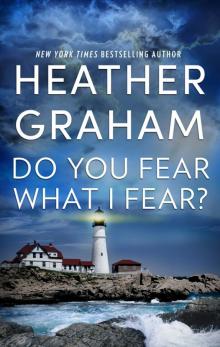 Do You Fear What I Fear?
Do You Fear What I Fear?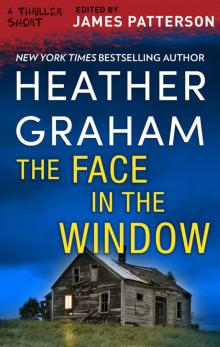 The Face in the Window
The Face in the Window Krewe of Hunters, Volume 3: The Night Is WatchingThe Night Is AliveThe Night Is Forever
Krewe of Hunters, Volume 3: The Night Is WatchingThe Night Is AliveThe Night Is Forever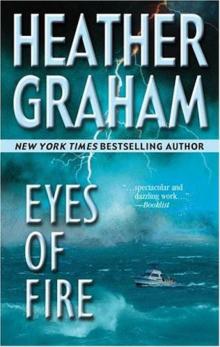 Eyes of Fire
Eyes of Fire Apache Summer sb-3
Apache Summer sb-3 Sensuous Angel
Sensuous Angel In the Dark
In the Dark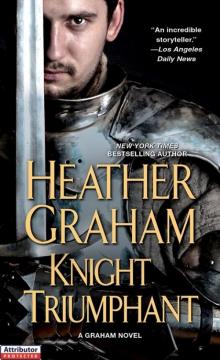 Knight Triumphant
Knight Triumphant Hours to Cherish
Hours to Cherish Tender Deception
Tender Deception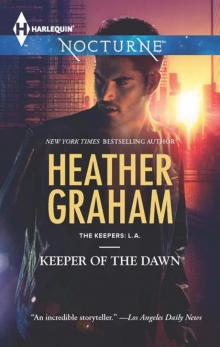 Keeper of the Dawn tkl-4
Keeper of the Dawn tkl-4 Apache Summer
Apache Summer Between Roc and a Hard Place
Between Roc and a Hard Place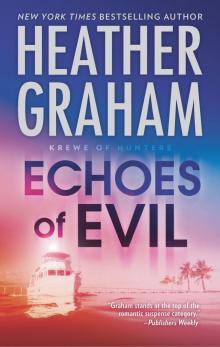 Echoes of Evil
Echoes of Evil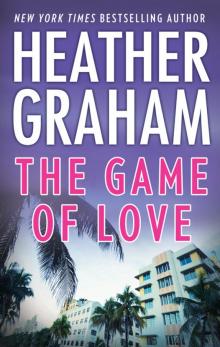 The Game of Love
The Game of Love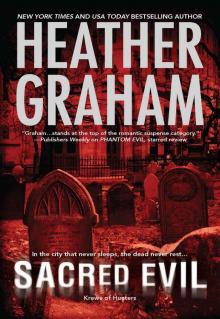 Sacred Evil (Krewe of Hunters)
Sacred Evil (Krewe of Hunters)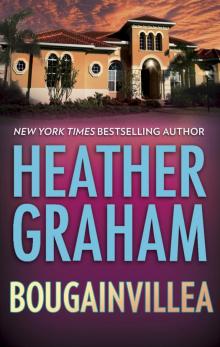 Bougainvillea
Bougainvillea Tender Taming
Tender Taming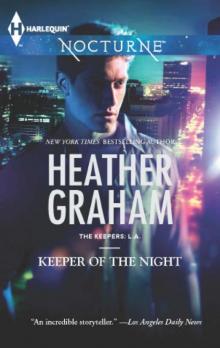 Keeper of the Night (The Keepers: L.A.)
Keeper of the Night (The Keepers: L.A.)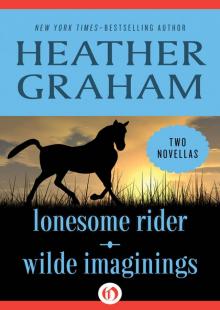 Lonesome Rider and Wilde Imaginings
Lonesome Rider and Wilde Imaginings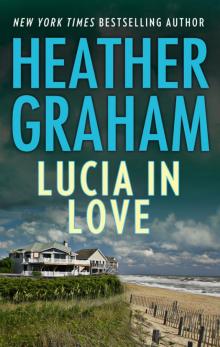 Lucia in Love
Lucia in Love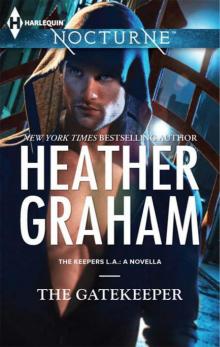 The Gatekeeper
The Gatekeeper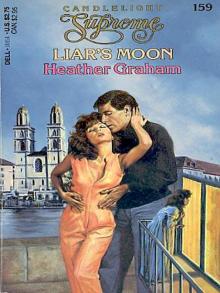 Liar's Moon
Liar's Moon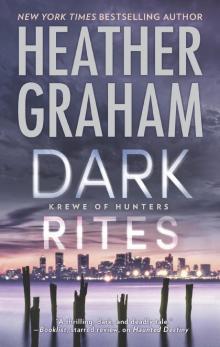 Dark Rites--A Paranormal Romance Novel
Dark Rites--A Paranormal Romance Novel A Season for Love
A Season for Love Krewe of Hunters, Volume 6: Haunted Destiny ; Deadly Fate ; Darkest Journey
Krewe of Hunters, Volume 6: Haunted Destiny ; Deadly Fate ; Darkest Journey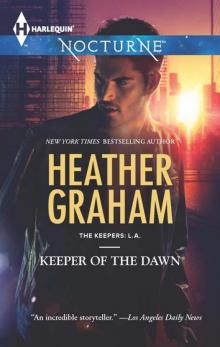 Keeper of the Dawn (The Keepers: L.A.)
Keeper of the Dawn (The Keepers: L.A.)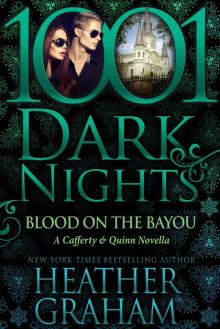 Blood on the Bayou: A Cafferty & Quinn Novella
Blood on the Bayou: A Cafferty & Quinn Novella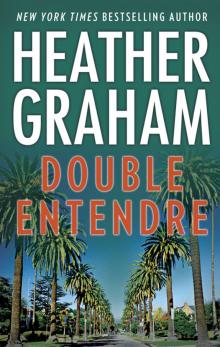 Double Entendre
Double Entendre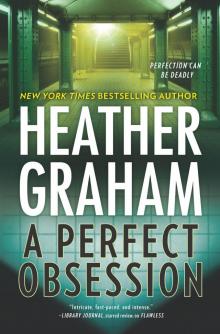 A Perfect Obsession--A Novel of Romantic Suspense
A Perfect Obsession--A Novel of Romantic Suspense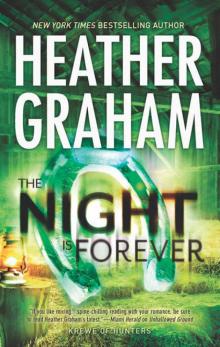 The Night Is Forever koh-11
The Night Is Forever koh-11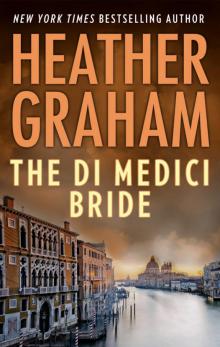 The Di Medici Bride
The Di Medici Bride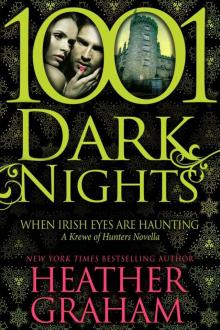 When Irish Eyes Are Haunting: A Krewe of Hunters Novella
When Irish Eyes Are Haunting: A Krewe of Hunters Novella The Keepers: Christmas in Salem: Do You Fear What I Fear?The Fright Before ChristmasUnholy NightStalking in a Winter Wonderland (Harlequin Nocturne)
The Keepers: Christmas in Salem: Do You Fear What I Fear?The Fright Before ChristmasUnholy NightStalking in a Winter Wonderland (Harlequin Nocturne)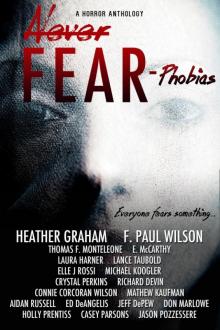 Never Fear
Never Fear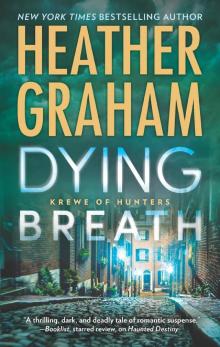 Dying Breath--A Heart-Stopping Novel of Paranormal Romantic Suspense
Dying Breath--A Heart-Stopping Novel of Paranormal Romantic Suspense If Looks Could Kill
If Looks Could Kill This Rough Magic
This Rough Magic Heather Graham's Christmas Treasures
Heather Graham's Christmas Treasures Hatfield and McCoy
Hatfield and McCoy The Trouble with Andrew
The Trouble with Andrew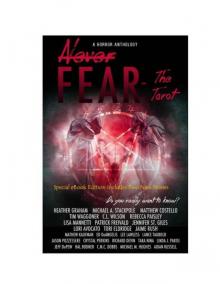 Never Fear - The Tarot: Do You Really Want To Know?
Never Fear - The Tarot: Do You Really Want To Know?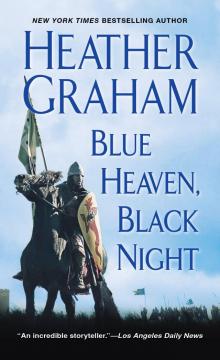 Blue Heaven, Black Night
Blue Heaven, Black Night Forbidden Fire
Forbidden Fire Come the Morning
Come the Morning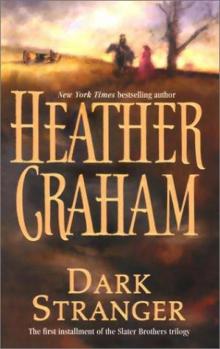 Dark Stranger sb-4
Dark Stranger sb-4 Lie Down in Roses
Lie Down in Roses Red Midnight
Red Midnight Krewe of Hunters Series, Volume 5
Krewe of Hunters Series, Volume 5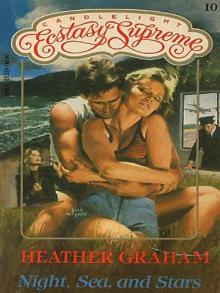 Night, Sea, And Stars
Night, Sea, And Stars Snowfire
Snowfire Quiet Walks the Tiger
Quiet Walks the Tiger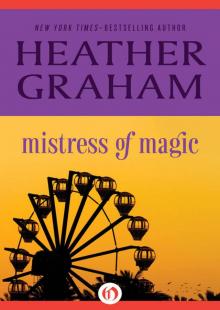 Mistress of Magic
Mistress of Magic For All of Her Life
For All of Her Life Runaway
Runaway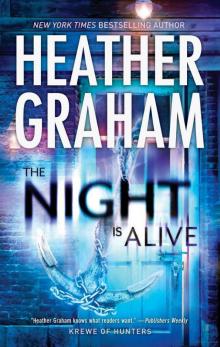 The Night Is Alive koh-10
The Night Is Alive koh-10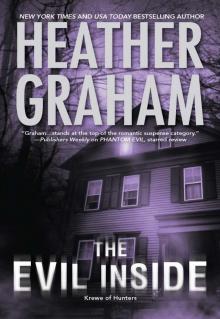 The Evil Inside (Krewe of Hunters)
The Evil Inside (Krewe of Hunters)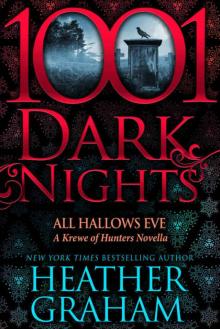 All Hallows Eve: A Krewe of Hunters Novella (1001 Dark Nights)
All Hallows Eve: A Krewe of Hunters Novella (1001 Dark Nights) Tomorrow the Glory
Tomorrow the Glory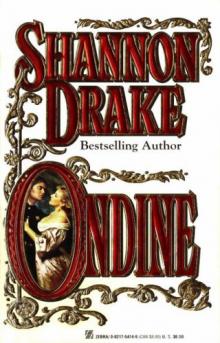 Ondine
Ondine Angel of Mercy & Standoff at Mustang Ridge
Angel of Mercy & Standoff at Mustang Ridge Bride of the Tiger
Bride of the Tiger When Next We Love
When Next We Love Heather Graham Krewe of Hunters Series, Volume 4
Heather Graham Krewe of Hunters Series, Volume 4 A Season of Miracles
A Season of Miracles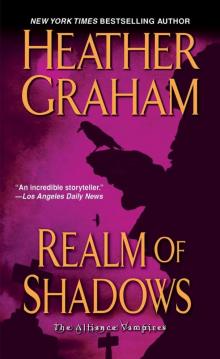 Realm of Shadows (Vampire Alliance)
Realm of Shadows (Vampire Alliance) When We Touch
When We Touch Serena's Magic
Serena's Magic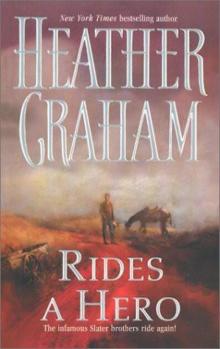 Rides a Hero sb-2
Rides a Hero sb-2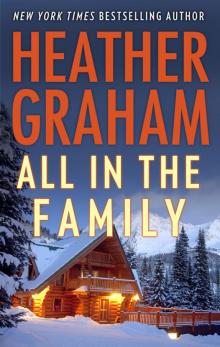 All in the Family
All in the Family Handful of Dreams
Handful of Dreams A Stranger in the Hamptons
A Stranger in the Hamptons Krewe of Hunters, Volume 2: The Unseen ; The Unholy ; The Unspoken ; The Uninvited
Krewe of Hunters, Volume 2: The Unseen ; The Unholy ; The Unspoken ; The Uninvited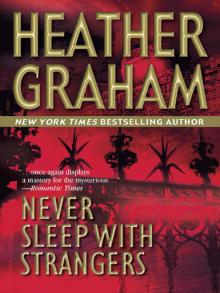 Never Sleep With Strangers
Never Sleep With Strangers Eden's Spell
Eden's Spell A Magical Christmas
A Magical Christmas Forever My Love
Forever My Love King of the Castle
King of the Castle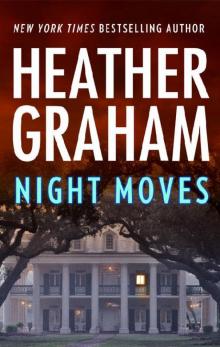 Night Moves (60th Anniversary)
Night Moves (60th Anniversary) The Island
The Island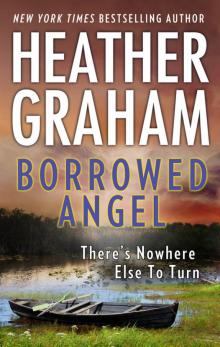 Borrowed Angel
Borrowed Angel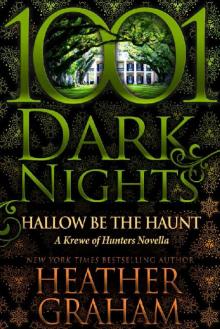 Hallow Be the Haunt: A Krewe of Hunters Novella
Hallow Be the Haunt: A Krewe of Hunters Novella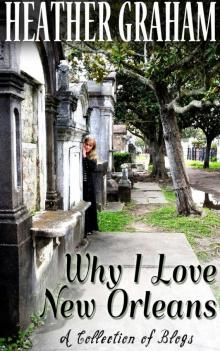 Why I Love New Orleans
Why I Love New Orleans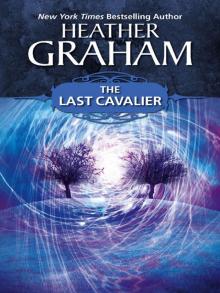 The Last Cavalier
The Last Cavalier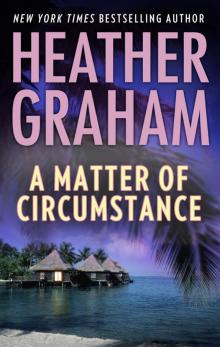 A Matter of Circumstance
A Matter of Circumstance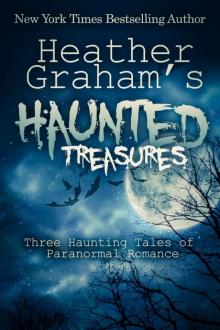 Heather Graham's Haunted Treasures
Heather Graham's Haunted Treasures Tempestuous Eden
Tempestuous Eden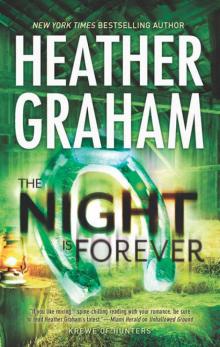 Krewe 11 - The Night Is Forever
Krewe 11 - The Night Is Forever